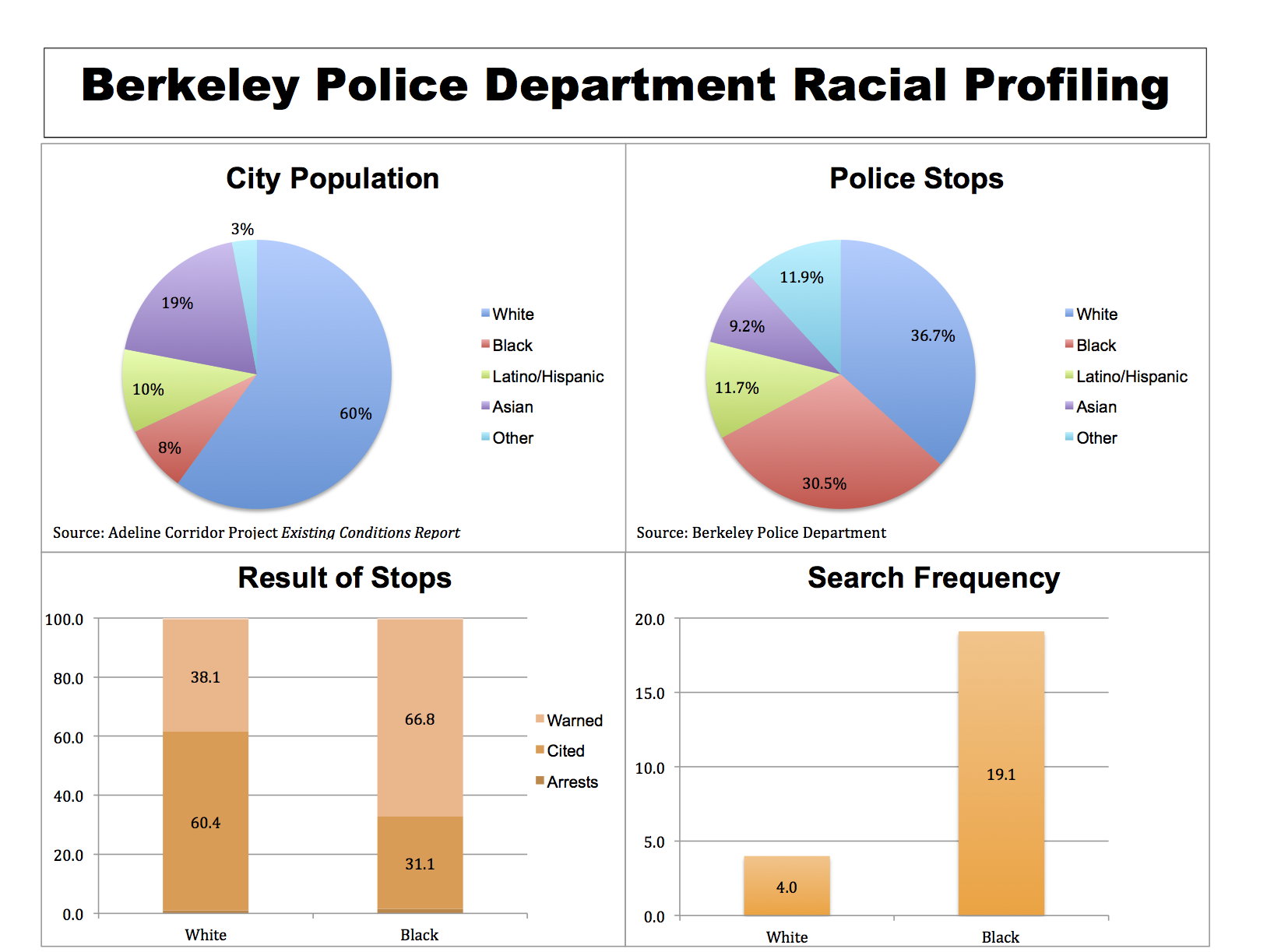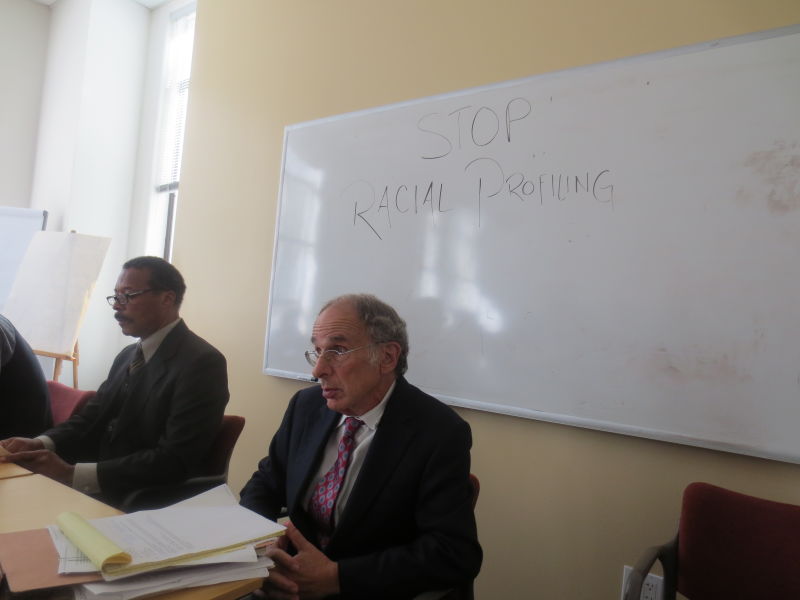And while 38 percent of whites stopped by police were released without arrest or citation, 66 percent of African-Americans and 56 percent of Latinos who were stopped were ultimately released under the same circumstances.
Advocates said these numbers supported the conclusion that "when African-Americans and Latinos are stopped, very often it is for no reason." They said the findings confirm previous charges of racial profiling on the part of the Berkeley police.
The Berkeley City Council mandated the collection of data on police stops in June 2014 as part of the Police Department’s Fair and Impartial Policing policy — a model that Berkeley Police Chief Michael Meehan says he takes pride in.
In response to the coalition's findings, Meehan said his department has no tolerance for biased policing.
"Such discrimination is illegal, it is not our practice, and it is not part of our organizational culture,” he said.
Marcel Jones, a Berkeley Copwatch organizer and member of the UC Berkeley Black Student Union, pointed to the experiences behind these numbers while speaking at a Tuesday press conference.
“When these searches happen, folks are put in handcuffs, are sitting on the curb, have to deal with that embarrassment, have to deal with that trauma,” he said.
Berkeley civil rights attorney Jim Chanin said he was troubled by the disparity between how often blacks and whites are cited or arrested -- a statistic known as "yield rate."
“The yield rate needs to be the same for African-Americans and whites," he said. "Because we have found that when it is, there are less African-Americans stopped -- and when they are, it’s for a good reason, and not no reason.”
The coalition presented several ideas on how to achieve that.
In addition to demanding the city mandate the use of body cameras for all police officers, advocates are also urging the department to retrain some department members. The activist coaltion also called for more frequent demographic reports on police stops, including information about pedestrian stops.
Meehan said the department worked with the NAACP, ACLU and the city's Police Review Commission to undergo fair policing training just last year, and will continue to do so.
“We all want the same thing," Meehan said. "We want a fair and equitable Police Department.”
Meehan added the department would commission its own analysis of the data through UCLA’s Center for Policing Equity in coming months.

